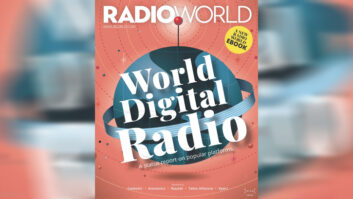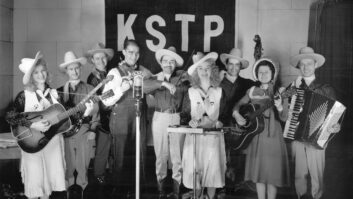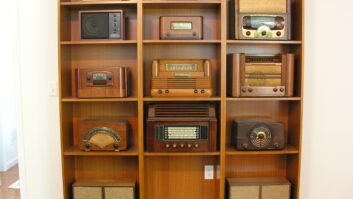There have been many books about Radio Caroline, the ship-based “pirate” radio station that brought 1960s pop music to Britons at a time where they couldn’t hear it anywhere else. But the new book, “Radio Caroline: Voices on the Air” does something rather different from previous volumes: It documents the roughly 600 DJ voices that have been heard on Caroline since its oceanic inception in 1964, right up to now when it can be heard on DAB+ and AM in parts of the UK, online and via smart speakers and smartphone apps. For the record, there were five ships that played home to Radio Caroline’s studio, AM transmitter and mast over the years. The largest was the Ross Revenge.
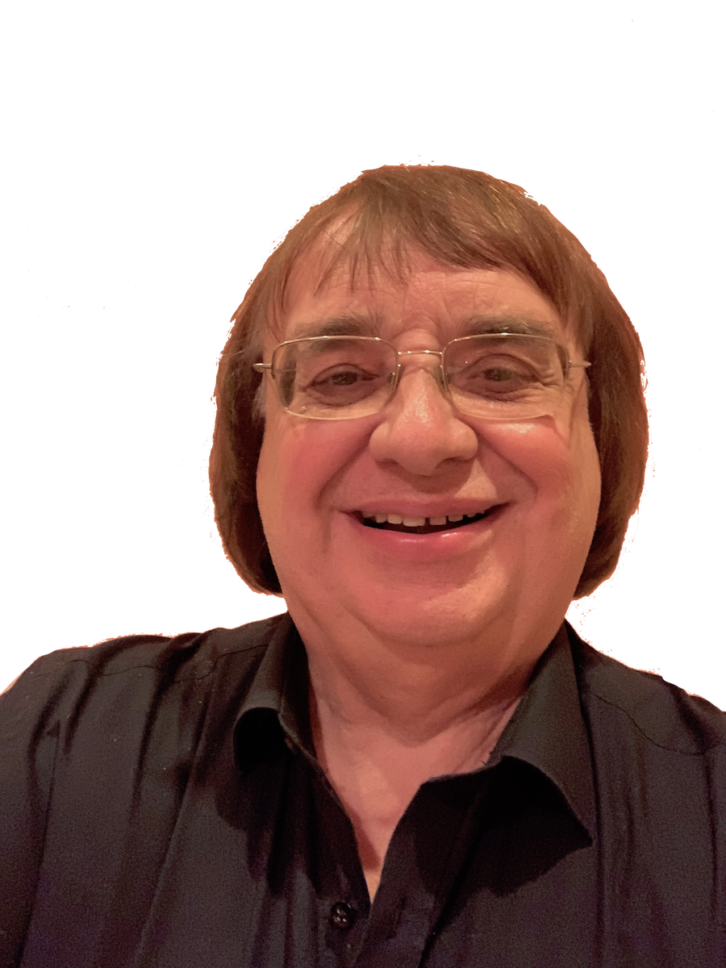
The editor of the book is Paul Rusling, a former UK radio DJ (including on Radio Caroline) and radio consultant. “I also worked for two regulators and my work covered licensing, administration, engineering and programming,” he told Radio World. “I’ve owned a couple of restaurants and pubs and also written fifteen books and numerous articles for newspapers and magazines — In other words a former DJ and engineer who made good, but prefers to eke out a life as just a poor hack journalist/writer!”
“Radio Caroline: Voices of the Air” is that rarity in any kind of history book, namely an account that tries not to leave anything out while still remaining conversational and entertaining. This is precisely what Rusling had in mind when he put it together, after writing an earlier history of the station entitled “The Radio Caroline Bible.”
“This book was written to fill the gaps in many people’s knowledge of who were the voices on the world’s most famous offshore radio ship, Radio Caroline,” he said. “Many other books about Caroline are simply autobiographies of individual disc jockeys, and are often very self-centered so that they ignore the bigger picture. While I am a former DJ myself, I focus on the wider picture discussing how DJs were hired, rather than on individual comments and life stories.”
Paul Rusling also wants to set the record straight on which DJs actually worked at Radio Caroline, and which didn’t. “There have been a lot of claimants who say they worked on the ship over the years,” he said. “Some of them are well known, including one current MP in the House of Commons.”
[Related: “Radio Caroline Returns to Its Roots“]
The contents for “Radio Caroline: Voices of the Air” came from the people who kept it on air. “I have enjoyed access to, and help from, the managers of all the phases of Caroline’s history,” said Rusling. “The founder Ronan O’Rahilly had a PA and ‘right hand man’ in Oonagh Karanja for 17 years, who was replaced by Ben Bode, then by Vincent Monsey and more recently by Peter Moore — all of whom have all contributed to my research.”
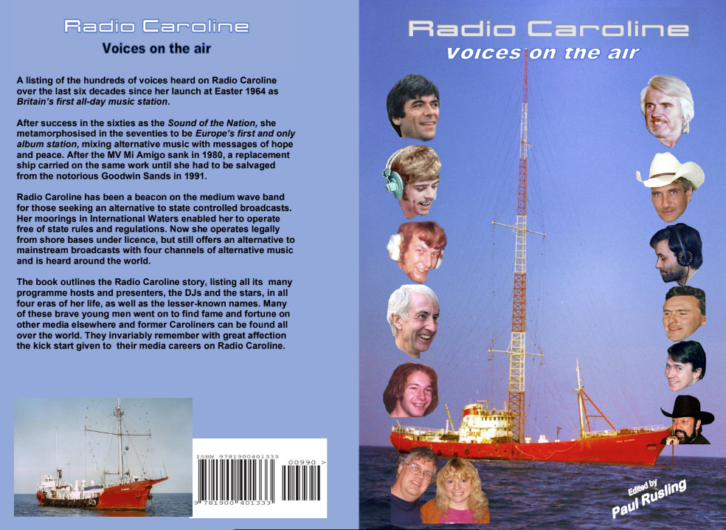
Having compiled this history of Radio Caroline’s voices, Rusling has been impressed by “the sheer number of people who made up the crew. He was also struck by “the number of high stars and celebrities who hosted programs on the Caroline stations — especially in the 1960s when such luminaries as Kathy Kirby, Charlie Drake, Cleo Laine, Marianne Faithfull, Vera Lynne and others all fronted shows on Caroline.”
On a larger scale, Paul Rusling’s book helps to put Radio Caroline in context as a force that broke the BBC’s iron grip on UK radio and started that country’s long, slow journey to allowing commercial radio onto its airwaves.
“When I joined Caroline, the UK had only the BBC. There were no commercial, independent and/or privately-owned radio stations at all, so ships like Caroline were the only way to work in radio if one didn’t have a plummy accent,” he said. “Meanwhile, the millions of listeners who were hungry for pop music had to listen to radio ships like Caroline or foreign stations such as Radio Luxembourg, a border blaster with 1.2 million watts on AM, as the BBC rationed pop music to a few hours a week.”
Radio Caroline’s impact in changing this situation cannot be understated. The “radio revolution” it instigated in the UK over 50 years eventually transformed the very nature of British radio. “Today, the UK has somewhere approaching 600 stations, all without limits on the amount of music they can play,” said Rusling. “Most are local stations on digital multiplexes and audible for a few miles, but there are also a dozen or so ‘near national’ networks. And then, of course, our world now has over 100,000 online stations and there are over 2.5 million podcasters vying with radio for access to our ears. Meanwhile, podcasts are simply radio programs that the listeners can schedule at will, right?”
[Sign Up for Radio World’s SmartBrief Newsletter]
For those who love radio history, or are simply curious about how we got to where we are today, “Radio Caroline: Voices of the Air” is both an interesting read and a necessary addition to any serious library. But sadly, the station that started it all — Radio Caroline — no longer carries the clout that made it such a cocky, disruptive threat to the government-controlled UK broadcasting monopoly more than 50 years ago.
“Caroline today is regarded as a relic of radio’s history by most people, except for the small bunch of diehard fans who perpetuate her memory,” Rusling concluded. “Although Radio Caroline is now receivable on a variety of bands and appliances, the narrow ‘Golden Oldies’ program format she uses limits her appeal. In Caroline’s heyday, she attracted millions of listeners to whom her name still evokes fond memories.”
Radio Caroline: Voices of the Air is available for purchase through Amazon.com as a Kindle eBook or a paperback. Members of Amazon’s Kindle Unlimited service can read it for free.
